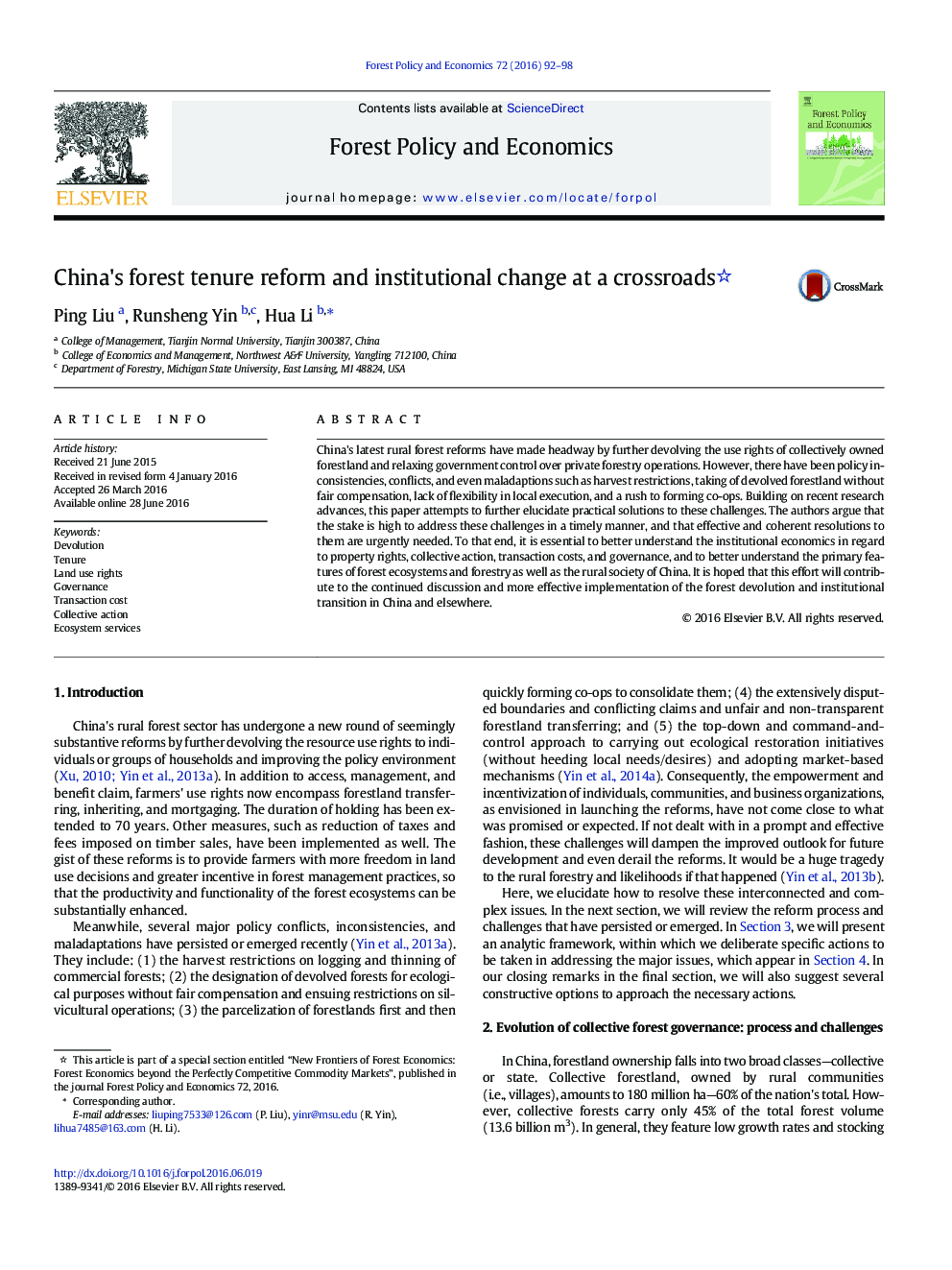| Article ID | Journal | Published Year | Pages | File Type |
|---|---|---|---|---|
| 6459889 | Forest Policy and Economics | 2016 | 7 Pages |
â¢China has encountered challenges in reforming and restructuring its rural forestry.â¢Harvest restrictions must be relaxed to improve the forest management incentive.â¢Parcelization of forestland and a rush to form forest co-ops need to be dealt with.â¢Boundary disputes and conflicting claims should be carefully resolved.â¢Rules of classified management and ecosystem service compensation ought to be adjusted.
China's latest rural forest reforms have made headway by further devolving the use rights of collectively owned forestland and relaxing government control over private forestry operations. However, there have been policy inconsistencies, conflicts, and even maladaptions such as harvest restrictions, taking of devolved forestland without fair compensation, lack of flexibility in local execution, and a rush to forming co-ops. Building on recent research advances, this paper attempts to further elucidate practical solutions to these challenges. The authors argue that the stake is high to address these challenges in a timely manner, and that effective and coherent resolutions to them are urgently needed. To that end, it is essential to better understand the institutional economics in regard to property rights, collective action, transaction costs, and governance, and to better understand the primary features of forest ecosystems and forestry as well as the rural society of China. It is hoped that this effort will contribute to the continued discussion and more effective implementation of the forest devolution and institutional transition in China and elsewhere.
